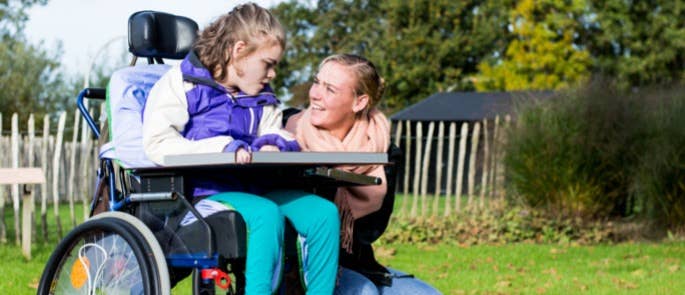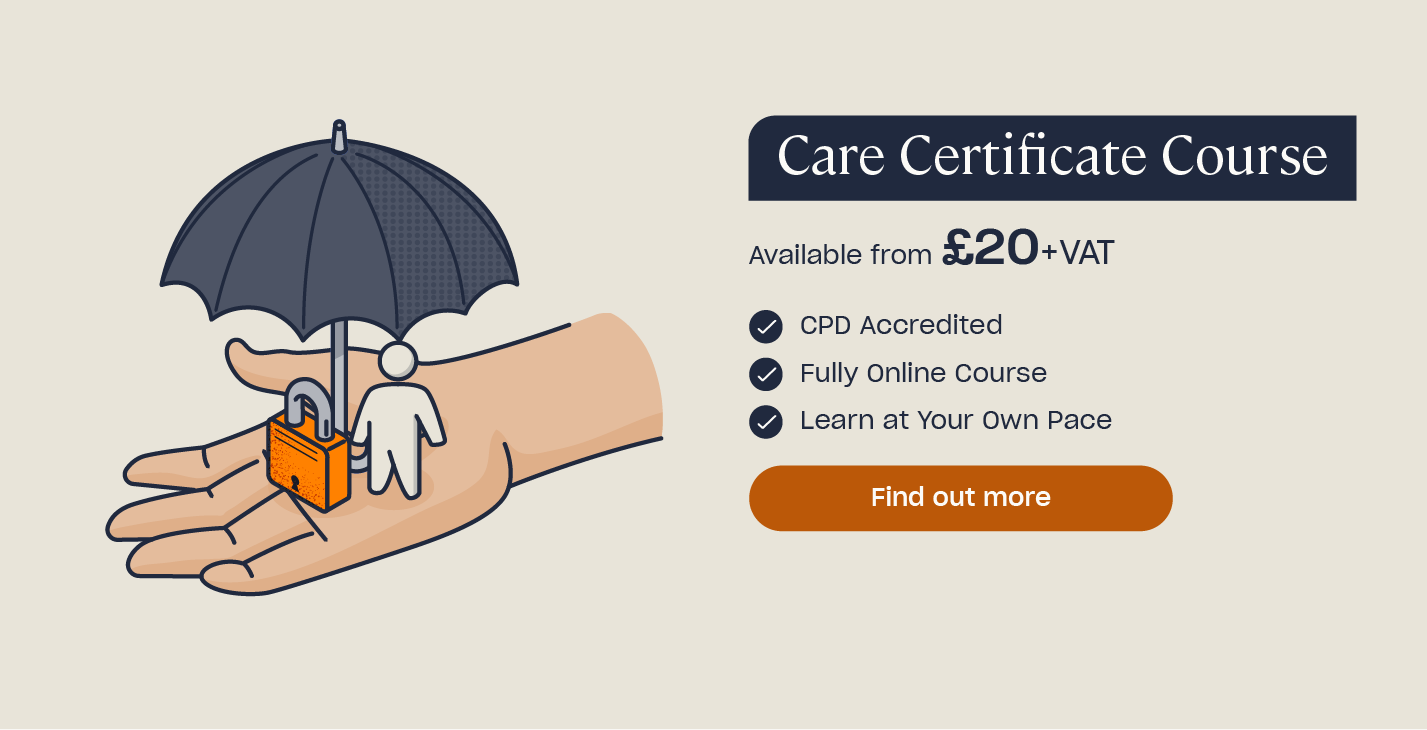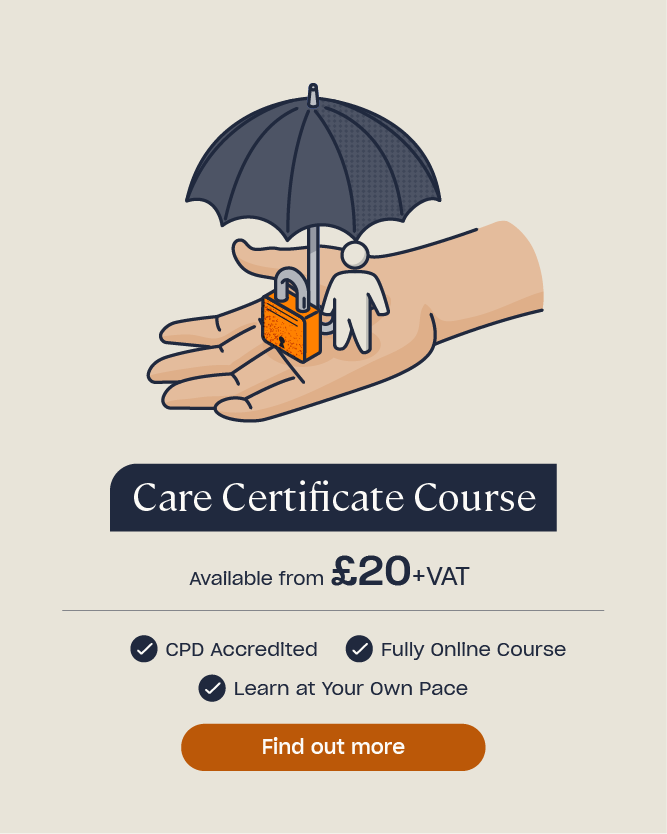Promoting Effective Communication in Health and Social Care
Communication plays an instrumental role in health and social care and is a core aspect of your working relationships. Being able to communicate effectively is a skill that has a range of benefits, perhaps most importantly that it helps you to deliver person-centred, high-quality care.
However, communication isn’t as straightforward as it might first appear. It’s not simply about what we say, but about relationships, understanding, and ensuring that our needs are met and our wishes are addressed. It is a two-way process involving one person expressing themselves and being understood by another.
This article outlines the role of communication in health and social care, examining its benefits and providing you with the knowledge you need to overcome any barriers and communicate effectively.
What is the Role of Communication in Health and Social Care?
The role of communication in health and social care is an incredibly important one. The nature of health and social care environments means that you will be interacting with multiple people on a daily basis, and it’s essential that you are able to communicate effectively with them.
It’s important to remember that communication looks different to everyone. There are many ways that people communicate, including verbal communication (speaking aloud), written communication, such as sending emails or keeping records, and non-verbal communication, such as hand gestures or facial expressions. However, there are also many additional ways that people communicate, depending on what works best for them and their needs. For example, individuals may communicate using sign language, Makaton or Braille. It’s important that all types of communication are supported.
Interested in Learning More?
If you’re looking for an in-depth and effective way to improve communication in a health care setting, our Communication Skills in Health & Social Care Course will provide you with the information and guidance you need to develop your existing skills and use a variety of communication methods.
Finally, developing good communication skills is essential if health and social care workers are to develop other skills. For example, you would be unable to offer person-centred care if you couldn’t communicate well with the individual in your care and understand their needs and preferences. Similarly, you need to be able to communicate well with individuals in order to uphold their privacy and dignity and promote their independence.

Why is It Important for Healthcare Professionals to Have Effective Communication?
Being able to communicate well helps to ensure that you can carry out your role effectively. It is central to finding out service users’ needs and wishes, delivering high-quality care, and building good relationships with service users, any visitors and your colleagues.
Service Users
Being able to communicate effectively is crucial for having good relationships with your service users. You will be able to find out their needs and wishes and avoid any potentially distressing misunderstandings and miscommunications. What’s more, if you communicate effectively with a service user, they are much more likely to have confidence in what you tell them and put their trust in you.
Communicating poorly with service users can have a range of consequences. For example, if you adopt closed body language such as crossing your arms, they may feel like you are unapproachable or unfriendly. Similarly, if you miscommunicate and share inaccurate information, a person’s care and support could be affected – for example, if they have an allergy and you miscommunicate this to kitchen staff.
Your Colleagues
Communication is also the foundation of your working relationships. Your job role will likely involve you sharing relevant information with colleagues about service users, making decisions, listening to the views of others and acting on them.
Communicating effectively with colleagues is key if you are to deliver your mutual goal of providing high-quality care to individuals. For example, if an individual wants to change something about how their care is delivered, then it is also important that you share this information effectively with colleagues who care for the individual so that they are aware and meet the individual’s needs. Additionally, it’s crucial that you communicate this change formally in the individual’s care plan so that it is documented and everyone who cares for them can see it.
Visitors
Finally, being able to communicate effectively is central to the relationship you have with visitors, such as an individual’s family. A key part of communication is confidentiality – respecting all individuals’ personal data and protecting it by ensuring that it is only shared with others on a need-to-know basis and with consent.
If an individual gives you consent to share information with somebody, it’s crucial that you communicate this information in a professional manner. Speak to the person out of earshot of other people to avoid sharing information with those who don’t need to know.
It’s also important that your communication is empathetic and understanding. There may be times when you have to deliver bad news to a service user’s family and it’s crucial that you communicate sensitive topics in a suitable and professional manner.

What are the Barriers to Communication in Health and Social Care?
While it’s clear to see how important communication is, there are a number of barriers that may prevent you, and those who you care for and support, from communicating effectively. These can include:
- Emotions and attitudes – these can play a large role in communication. For example, if you rush a conversation with a service user because you are busy, or come across as abrupt, you may make them feel frustrated and unlikely to want to communicate. Similarly, if an individual feels upset or angry, they may not want to communicate with you or may struggle to communicate without letting their emotions take over.
- Language – if you and the service user speak different languages, this may make it difficult to communicate. Additionally, even having a strong accent or speaking in a dialect associated with where you live can make it difficult for others to understand you.
- Health conditions – some individuals in your care may have a health condition that makes it difficult for them to communicate. For example, if they have had a stroke, or if they have dementia, this may have affected their ability to think rationally and reason clearly. Additionally, if someone is experiencing a mental health condition such as depression, they may find it difficult to express how they are feeling.
- Physical barriers – someone may be physically unable to communicate, such as if they are breathless or in pain. Additionally, the use of PPE, such as face coverings, can make it especially difficult for some people to communicate -for example, if they are deaf and rely on lip reading, if they use facial expressions to help them understand, or if they have hearing difficulties and can’t hear people clearly through the face covering.
- Environment – certain environments can make it difficult to communicate in – for example, if the room is noisy and you struggle to hear others. Additionally, if the environment is uncomfortable for the service user, such as if it is too dark or too warm/cold, they may be less likely to want to communicate.

How to Promote Effective Communication in Health and Social Care
While there are many barriers to effective communication, you need to overcome them if you are to offer person-centred care. Recognising when someone is struggling to communicate and putting actions into place that will help them can vastly improve their quality of life.
Remember that communication is a two-way process: it involves both giving and receiving messages. Therefore, to be able to promote effective communication, you need to consider the way you give messages as well as receive them from others. If you are wanting to promote more effective communication, you should think about the following:
Consider the Environment and Distance
Think about the way that you position yourself in relation to a service user. For example, your chairs should be facing each other if you are sitting and having a conversation. Additionally, it’s important to think about how close you are to them in distance. If you are too close, they may feel uncomfortable and as though you are invading their personal space.
The nature of health and social care means that you may sometimes have to get closer to an individual, such as if you are taking a blood sample or providing personal care. Ensure you always inform the individual of what you are about to do before you move closer to them.
Listen Actively
When an individual communicates with you, it’s important that you employ active listening skills. This means listening closely to what they are saying and then employing certain techniques, such as nodding to encourage them to keep talking, changing your facial expression so that you are smiling or raising your eyebrows in response to what they have said, and adopting open body language such as open arms and uncrossed legs. This is important for making an individual feel valued and as though they are being listened to.

Give Them Time
Give people enough time to communicate and don’t rush them. For certain individuals, such as some who have learning disabilities, they may take longer to process information and gather their thoughts, so giving them plenty of time is crucial. Additionally, there may be some people who have reduced energy levels, such as if they are in hospital with illness, who may need a bit longer to think before they respond. Ensure that you are guided by the individual and communicate at a pace that is comfortable for them.
Ask Questions
Don’t be afraid to ask if you don’t quite understand what someone is saying, rather than guessing what you think they mean or making assumptions about what you think they’ve said. For example, concluding that someone has expressed they want their care to be delivered in a certain way based on assumptions can be damaging if they meant something completely different.
Similarly, if you haven’t heard someone, ask them to repeat themselves rather than pretending to hear or guessing what you think they said. Physical barriers to communication, such as the use of face masks, can make this especially difficult, so ensure that you ask questions to avoid any miscommunications or misunderstandings.
Listen to More Than Just Words
Communication is about so much more than simply what somebody says. It also includes:
- Tone of voice – this is about the way somebody speaks. Tone of voice is important for conveying meaning; if somebody is feeling low they may speak in a monotonous tone, or if somebody is excited their tone may be more varied and enthusiastic.
- Pace – this refers to the speed at which somebody speaks. For example, somebody may speak quickly if they are excited.
- Body language – this can be open or closed. Closed body language, such as fiddling or turning away, can indicate that someone is disinterested or nervous.
- Gestures – these can emphasise what is being said or act as an alternative to speech. For example, somebody may use hand movements to express or emphasise what they are feeling.
- Facial expressions – these can show emotions or reactions, such as smiling when you are happy or raising your eyebrows when you’re interested.
However, it’s important not to make assumptions about how somebody is feeling or what they’re trying to communicate. For example, we may think that if somebody is maintaining eye contact they are engaged, and if they are looking away they are disengaged. However, in some cultures eye contact is considered impolite. Avoid making assumptions and ensure you take the interaction as a whole, asking questions if you are unsure.
Communication is a central part of health and social care, and being able to communicate effectively with service users, colleagues and visitors is a crucial part of delivering high-quality and person-centred care. Avoid making assumptions about what you think people mean, address any barriers to communication, and remember that communication is a two-way process.
Further Resources:
- Person-Centred Care Training
- Compassion in Care: What are the Six Cs?
- What is Person-Centred Care and Why is it Important?
- How to Maintain Confidentiality in Health and Social Care
- Champions in Healthcare: Role and Responsibilities
- Using a Personal Development Plan in Health and Social Care
- Guidance on Complaints Procedures in Health and Social Care
- Defining the Different Types of Discrimination in Health and Social Care
- What are Difficult Conversations in Health and Social Care?
- Duty of Care in Health and Social Care: Responsibilities & Examples
- What are Inequalities in Health and Social Care?
- How to Promote Empowerment in Health and Social Care
- What is the Role of Active Participation in Health and Social Care?
- How to Support Professional Development in Health and Social Care







